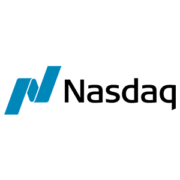Alphabet’s Acquisition of Fitbit is a Case of Perfect Timing
By Chris Markoch
On Friday, the markets waited in anticipation as trading on Fitbit (NYSE:FIT) stock was paused. Shortly after the markets opened, the news broke that Alphabet will buy Fitbit for $2.1 billion. Shares of FIT soared 15% after the announcement. Alphabet stock is up about 3.5% in mid-day trading. Although this news was being telegraphed for several days, the timing of the announcement was perfectly timed as investors are looking to capitalize on new trends in the tech sector.
The wearables market is taking off
There are many reasons why this acquisition makes sense for Alphabet. One of the primary issues is related to the growth in the wearables category. Once thought an ill-fated fashion trend, Apple (NASDAQ:AAPL) showed in its earnings report on October 30 that demand for wearables is growing. Apple reported an eye-popping 54.4% year-over-year increase in revenue from wearables. This means that Apple’s wearables market, which has only been around since 2015, has a bigger share of Apple’s bottom line than the iPad.
It was not immediately clear how much of the $6.5 billion number was tied to the Apple Watch. However, Apple’s wearables market is made up of two product lines: the Apple Watch and its AirPods line. So it’s reasonable to assume that the Apple Watch was a significant part of this growth. Apple did say that three out of four Apple Watch purchases were made by new consumers.
It won’t be known for several years if this kind of growth is sustainable. But for now, Apple looks to be successfully making in-roads within its iOS ecosystem. Instead of users choosing either an iPhone or an Apple Watch, they’re starting to say “why not both”?
Can Alphabet take a bite out of Apple’s momentum?
Alphabet has been trying to get into the wearables category with its Wear OS. But the company has struggled to get traction. The acquisition of Fitbit immediately gives Alphabet access to approximately 6% of the global market. While that number may not make Apple quiver anytime soon, it’s enough to get attention.
After the announcement, Fitbit CEO James Park said, “Google is an ideal partner to advance our mission. With Google’s resources and global platform, Fitbit will be able to accelerate innovation in the wearables category, scale faster and make health even more accessible to everyone.”
That last part, making health accessible, is one of the keys to this announcement. When devices like the Fitbit and Apple Watch were introduced, the ultimate question that had to be asked was the why. It was simple enough to see what the device did, but why was that important.
But wearables, like Amazon’s (NASDAQ:AMZN) Alexa and the Google Assistant are ideas that were ahead of their time. By this I mean they had to be created as a vessel to open up the possibilities. Among those possibilities is the ability of these devices to collect data. And there is almost no other industry that offers greater possibilities for the use of big data than healthcare. That’s where Alphabet comes in. As the global leader in artificial intelligence (AI), they are an ideal partner to make use of the vast amounts of data Fitbit has gathered over 10 years.
Fitbit has been making deals with health care plans and working to get FDA approvals. All of which complements work that Alphabet has already been doing, says James Cassel, chairman and co-founder of investment banking firm Cassel Salpeter & Co. In an email interview, Cassel said of the partnership, “Since Google has numerous health initiatives at present, those should complement what Fitbit brings to the table. Access to the installed base could be very helpful to Google’s healthcare initiative Project Baseline … as well as other health-centric projects they are working on.”
Is this deal a slam dunk for investors?
Investors will be cautiously optimistic about the opportunities this deal presents. With a market cap of $870 billion, the $2.1 billion acquisition wouldn’t seem like a huge expense for Alphabet. But FIT will still be leverage on Alphabet’s balance sheet. And there will certainly be more costs as the companies integrate.
However, like the wearables category in general, this is probably a case where the partnership has to come before the profit. Separately, Fitbit has struggled with increasing competition in the wearables category. And Alphabet has struggled to get its own line of wearables off the ground. Together, this looks like a marriage of two strengths.
Click here to view the PDF.










